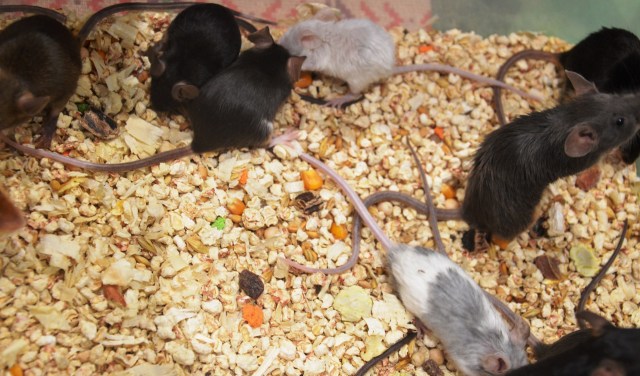Researchers discover everyday substance that clears dangerous buildup from the body — here’s what they found
Medical professionals and the general public have become increasingly concerned about the
health risks
of microplastics in the body.
Fortunately, a group of researchers at Tokai University in Japan offered hope upon discovering that a type of non-digestible dietary fiber could help remove microplastics from our bodies.
As News Medical Life Sciences
reported
, chitosan helped expel microplastics from test subject rats within days. The researchers found that chitosan promoted fecal excretion of microplastics in the rodents.
Chitosan
is a natural substance typically derived from the outer skeletons of crustaceans.
The university researchers studied 30 rats in four experimental groups and one control group. They analyzed fecal and blood samples and the rats’ internal organs to measure the amounts of microplastics after the animals ate controlled diets.
The results showed that rats fed chitosan had significantly higher fecal excretion rates of microplastics than others during the one-week experimental period. Also notable was that chitosan-fed rats retained fewer microplastics in their gastrointestinal systems.
The researchers
published
their findings in Scientific Reports, concluding that chitosan has a remarkable ability to aid the excretion of microplastics.
“Chitosan, a natural polysaccharide derived from chitin, effectively binds MPs and promotes their removal from the body,” they
wrote
. “The effectiveness of chitosan in promoting MP excretion suggests that chitosan is a valuable dietary supplement for reducing MP accumulation in the gastrointestinal tract.”
Chitosan is associated with high fecal excretion of microplastics through both chemical and physical reactions. Evidence suggests that chitosan dissolves in gastric juices and binds to bile acids in the GI tract.
This study is significant because it highlighted how microplastics stubbornly remain in the gastrointestinal tract and aren’t quickly expelled from the body. There have been increasing concerns about microplastics’ effects on long-term gut health and the digestive system.
|
|
This research was the initial one to demonstrate that chitosan can successfully eliminate microplastics via fecal discharge and decrease their accumulation within the intestines.
The research team suggested conducting additional investigations into the impact of chitosan on various sizes and forms of microplastics. Additionally, they highlighted the importance of gaining deeper insights into how chitosan behaves and travels within an organism.
Although this research was carried out solely on rats, it suggests potential for future applications in humans.
harmful effects
The presence of microplastics within the human body can be minimized. This is important because microplastics are
inescapable in today’s world
.
Even as comparable studies proceed, it makes sense to
use less plastic
In everyday life to minimize your contact with it.
Join our
free newsletter
for regular updates on the newest developments
improving our lives
and
shaping our future
, and don’t miss
this cool list
of easy ways to help yourself while helping the planet.
Scientists have identified a common material that eliminates harmful accumulation within the body—here’s what their research revealed.
first appeared on
The Cool Down
.






